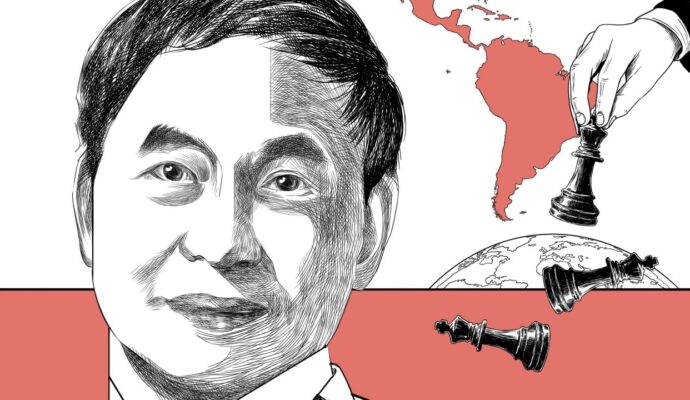
“If they have employees overseas who are subject to US tax regulations or have US dollar bank accounts … [the employees] may need to declare tax information under the employee stock options plan.”
As China’s highest-valued technology start-up, ByteDance was reportedly pursuing an initial public offering (IPO) in either New York or Hong Kong in 2021, but the plan was put on hold after it was asked by Chinese government officials to focus first on protecting data security, the Wall Street Journal reported at the time.
In July 2021, amid the height of Beijing’s regulatory crackdown on the Big Tech sector, Chinese authorities launched a cybersecurity investigation into Didi Chuxing, just two days after the ride-hailing giant’s blockbuster IPO in New York. The probe resulted in a US$1.2 billion fine against the company a year later.
TikTok CEO Chew Shou Zi is set testify in the US Congress about the app’s operations next month. Photo: AFP
Since then, ByteDance has repeatedly denied it was working to float some or all of its businesses. Chief financial officer Julie Gao told employees last August that the company had no plans to go public.
The firm also faces growing scrutiny in the US and other major Western markets over security concerns about TikTok. Chew Shou Zi, CEO of TikTok, is expected to testify to US Congress about the app’s operations in late March.
However, the fundraising outlook for China’s tech companies appears to be improving this year, as Beijing shores up its support for the domestic internet industry to try to revive the country’s slowing economy.
From March 31, the China Securities Regulatory Commission will have the mandate to vet applications by mainland companies for offshore listings, including in the US and Hong Kong – allowing businesses to raise funds from international investors after a nearly two-year pause. Didi’s smaller rival Dida on Monday resumed its application to go public in Hong Kong.


